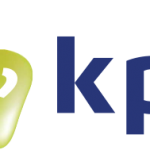2007 21
Traditional Media vs Internet
Published by MartinVarsavsky.net in General with No Comments
These days there was a little war on the Internet in Spain when the leading TV chain in Spain, TVE, ran a show in which they showed how easy it was to vandalize Wikipedia. And what´s worse, after vandalizing some articles, the producers of the show did not even bother to correct the changes. As Microsoft likes to point out that Open Source is not safe to use traditional media´s attack on the Internet generally centers around proving that the Internet is not a trustworthy source of information. In the meantime the value of “reliable” traditional media companies keeps shrinking. Personally I think that the world needs both, professional journalists with great integrity and the user generated content of blogs and Wikipedia. But I can understand why as journalists start feeling that their jobs are being taken by bloggers who compete with their readers attention and do not demand payment other than the occasional Google Ad would react violently and attack the Internet. In the end, this is a foolish strategy. The internet is more reliable than traditional media not because it can´t be wrong (it frequently is) but because it is self correcting. Needless to say the articles that were vandalized have by now been fixed.
Follow Martin Varsavsky on Twitter: twitter.com/martinvars
Related Posts
No Comments
Gilles Amsallem on August 21, 2007 ·
Martin, I think you address too straightforwardly the problem of representative democracy vs. so participatory democracy.
The trust in institutions ( media , politics , teachers … ) generally is a very serious issue that maybe your foundation should seriously address in light of all consequences;
We can’t ignore the danger of a politic , media education totally driven by immediate public opinion judgement .
Of course we should take care of growing public dissatisfaction with the current system and media.
The popular demands for new direct forms of social and political involvement and decision-making have increased particularly with Internet. More and more people are joining interest groups and engaging in unconventional forms of actions … it is good of course of course , but I can’t imagine a future of democracy without reliance on the institutions that may have to take decisions not immediately understandable by public opinion . Gilles
andres on August 21, 2007 ·
I think it’s just a matter of ignorance.
Journalists in Spain dont know anything about media or the digital scene (they know about gossip and football gossip). If you are an ignorant you can only talk about stupid stuff like spam, fraud, addiction to text messages or chat rooms.
I’d like to see what can the author of that Antena3 show about the impact of the internet in the Spanish society. I think 2 minutes will be enough.
Lena Michel on August 30, 2007 ·
The Spanish media is scary. The amount of inaccuracies that permeate the coverage is astonishing for a supposedly “professional” business. They need to stop hiring becarios and get some real, seasoned reporters in their ranks who know how to actually report a story from top to bottom. And yeah, all that deadwood sitting at the top needs to go too. Make way for a younger generation who has real journalism experience, in Spain and abroad.
What makes it worse is how incredibly lazy Spanish media are. They take things off the newswires or rip stories out of the NYTimes, Washington Post and just translate them into Spanish, while constantly putting their own peculiar, and I do mean peculiar, anti-American, anti-globalization, slant on it. It’s obvious that many of the oligarchs running Spanish media have NO CLUE about what’s going outside their despachos. ¡¡Espabilad!!
What traditional media doesn’t understand about digital media is that people want their news when they want it. They don’t want to wait until the evening to hear some pretty (or not so pretty) talking head telling them the “news of the day.” Also, bloggers put news into context. Punto. People are hungry not only for news but also analysis, for context…”What does this mean? How will this affect me?”, etc. The best bloggers give information while putting it into context by either giving it a reality check, questioning the veracity of it, etc.
The traditional media has a built in competitive advantage over bloggers (thanks to their deep pockets, extensive media networks, huge staffs, access to information from valuable sources, etc.). But like Cinderella’s ugly stepsisters, they’re too focused on denigrating and trying to cut down the little guy to stop and realize that there is a tremendous opportunity right now for ALL who want to reshape the landscape. Oh well. Their loss.
Leave a Comment
You must be logged in to post a comment.






Gilles Amsallem on August 21, 2007 ·
Congratulation to WIKIO, still lot of progress need to be done to respond expectations of press and media addicted (like me) … super idea and concept … I love it… Gilles